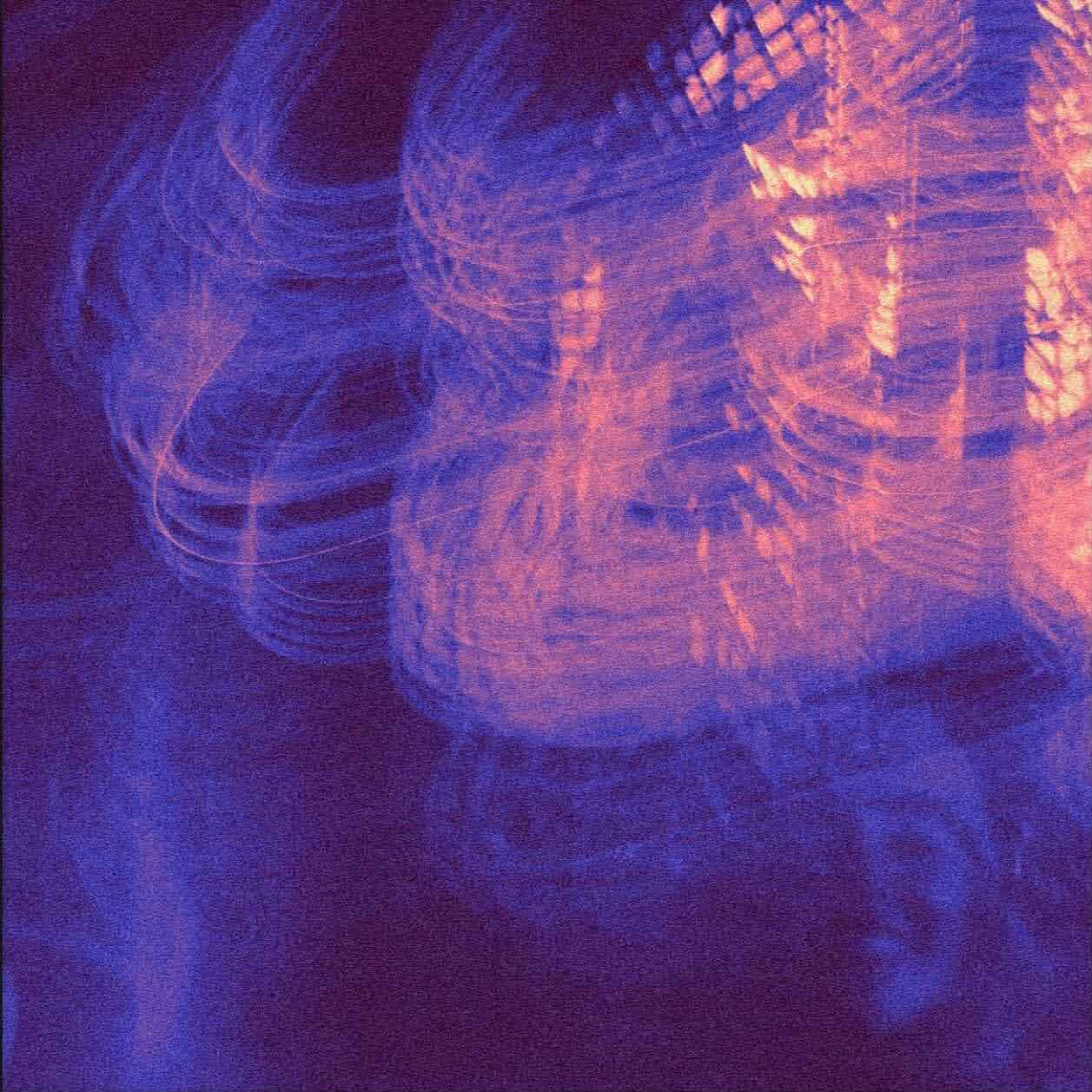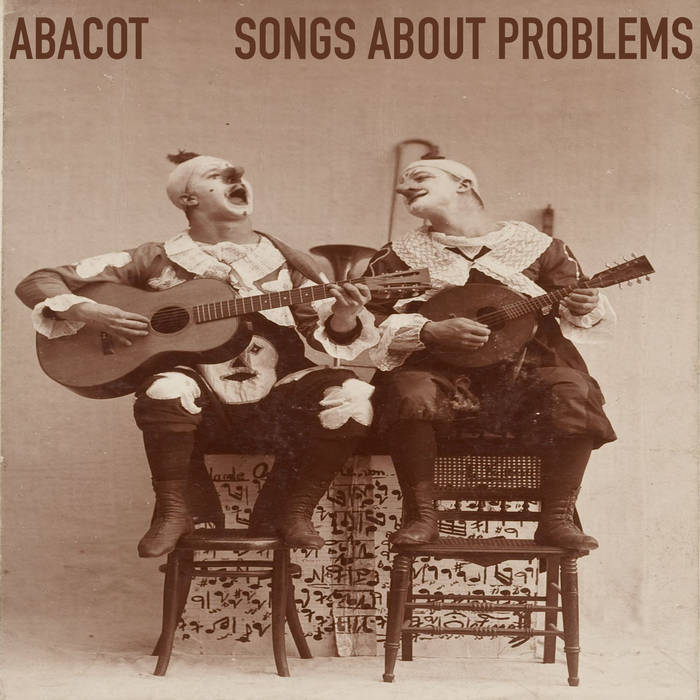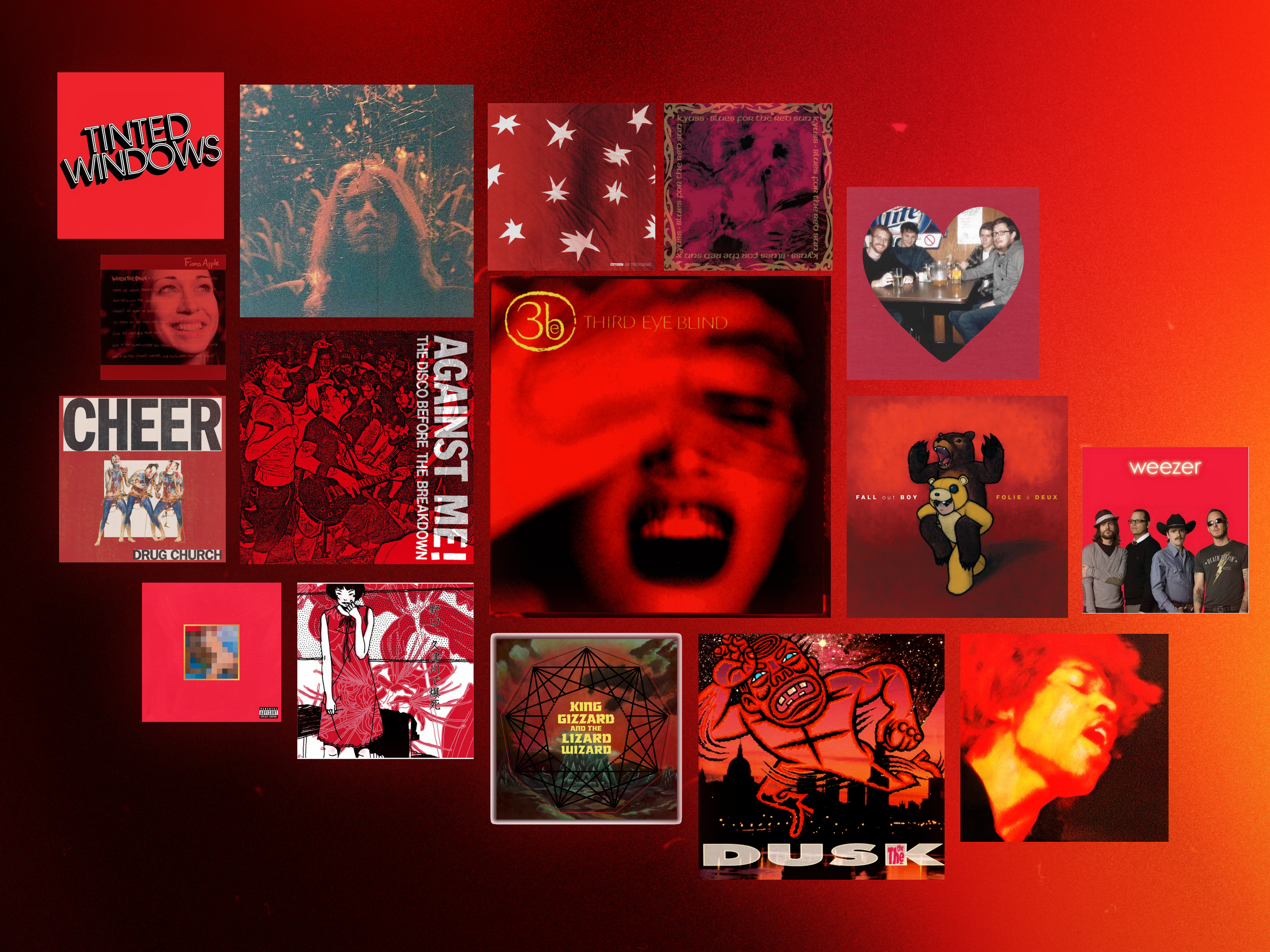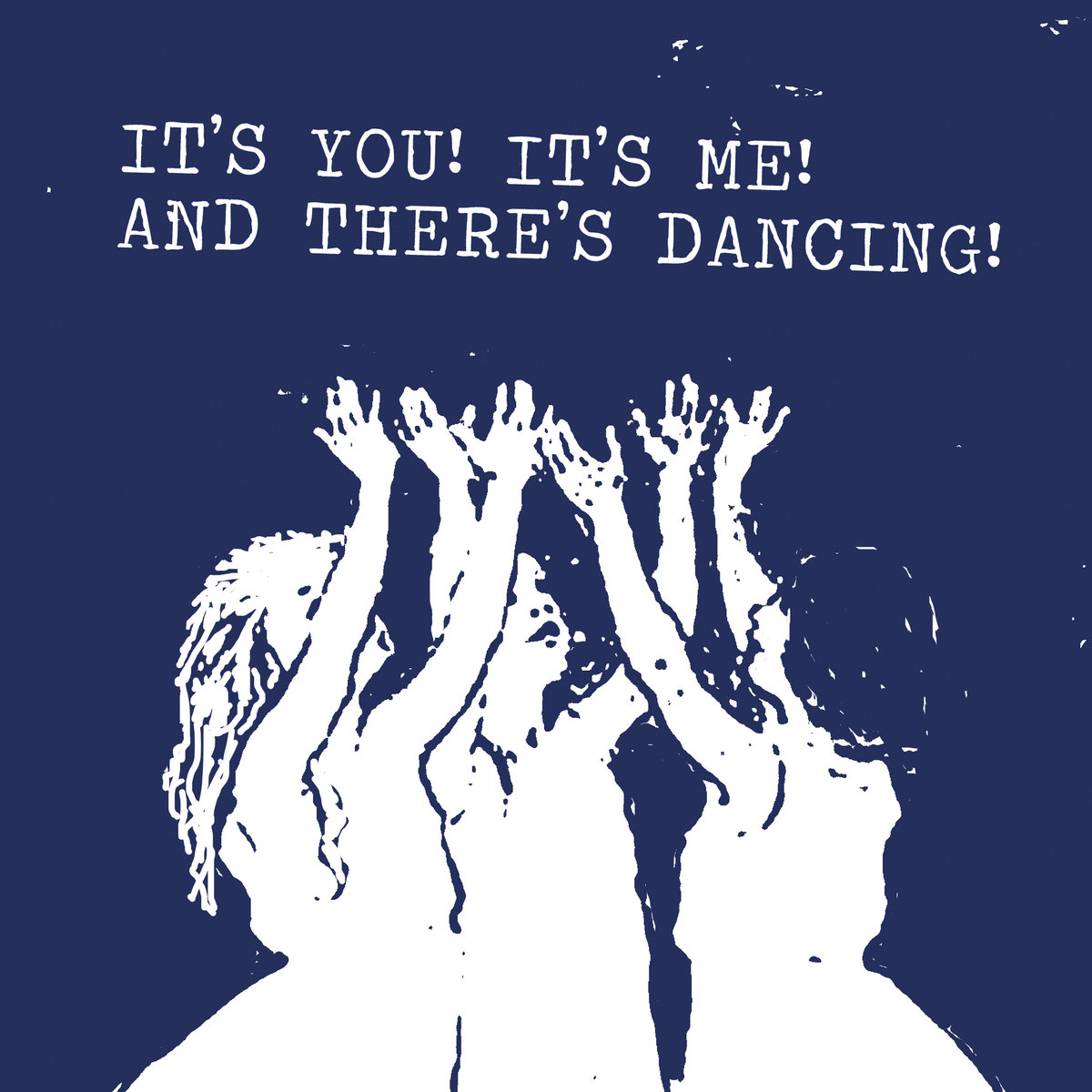Bartees Strange – Farm to Table | Album Review
/I’ve never been as excited to see the opener for one of my favorite bands as I was when I saw Bartees Strange supporting Car Seat Headrest. I showed up early enough to hear the blaring horns of “Heavy Heart” during soundcheck, the explosiveness of Farm To Table’s fiery, brass-backed lead single palpable even through Brooklyn Steel’s cinder block walls. I loved “Heavy Heart” just as much then, but now having heard it in the context of his sophomore album, it’s proven to be the perfect opener for a record that begs the question: once our blessings finally come, how should we receive them?
The couplet that opens the song (and the album itself)-- “there’s reasons for heavy hearts/this past year I thought I was broken” –lets us in on the often destabilizing feeling of getting a long-awaited win after a series of losses. Though Strange takes pride in his accomplishments, he’s wary that such acclaim could compromise his values or make him lose sight of what’s been motivating him in the first place:
I never want to miss you this bad
I never want to run out like that
Sometimes I feel just like my dad, rushing around
I never saw the God in that
Why work so hard if you can’t fall back?
Then I remember I rely too much upon my heavy heart
Strange’s path to success has been a long and unconventional one, to say the least. Born Bartees Cox Jr. in Ipswich, England, the eldest son of an Air Force engineer father and an opera singer mother, he had a transient, international childhood before settling in Mustang, Oklahoma at age 12. Much of his early musical education came in the form of church choir performances and piano and vocal lessons from his mom. During high school and his first year of college, he played football and had hopes of making it to the NFL, but soon realized that it wasn’t a viable enough option, and that the exploitation and lack of support he experienced as a Black student-athlete weren’t worth the risk. After transferring schools and getting his degree from Oklahoma University, he moved to Washington DC to work as an FCC press secretary under the Obama administration. Following this position, he bounced between DC and Brooklyn, producing for various artists, playing in the post-hardcore band Stay Inside, and releasing two solo EPs– a 2017 collection of folk songs titled Magic Boy under the name Bartees & the Strange Fruit, and 2020’s Say Goodbye To Pretty Boy in which he covered five songs by The National, a band he cites as one of his biggest influences (and who he’ll be supporting on an upcoming tour). Just months after releasing SGTBP, he dropped his breakout debut album, Live Forever, a transformative anti-genre behemoth that skyrocketed him to indie fame.
Flash forward to late 2021, and it seemed like all the big-name indie rock artists were lining up to take Strange on tour. He sounded almost timid introducing himself to the crowd when I saw him open for Car Seat Headrest at their 3-night Brooklyn Steel run in March, but when he launched into a rousing performance of “Mustang,” it was as though a switch had flipped. Whatever shyness I’d seen moments earlier melted away entirely as he tore into the Live Forever single with the force of the titular horses that gallop through the track’s second verse– “I just wait for my horses now.” It’s been a slow climb, and he’s been patient, but Strange isn’t waiting anymore. Everything he’s been working toward is here for the taking. As brilliant as he was as a first act, and as deserving as he is of all the exposure he’s gotten from supporting more established artists, I saw someone who’d outgrown his indie rock opener status. His sound felt too big. His name was worthy of stadium marquees and the largest font on festival flyers. I have very little doubt that the next time I see Strange, he’ll be the one headlining. He’s more than ready for it, and Farm To Table proves that a million times over.
It’s an album that feels present in every sense of the word, despite its watchful eye on the past. Many of these songs see Strange reflecting on his upbringing, his current perspective both illuminated and disrupted by physical and temporal distance from childhood. On the quiet, acoustic closer “Hennessy,” he examines the racist stereotypes that he was inundated with during his formative years in Mustang, Oklahoma, a city whose near-90% white population often made Strange– a Black kid who’d spent his early years living all over the world –feel like an outsider. The line “sometimes I don’t feel like I’m the man” is both a humble admission of self-doubt and a solemn contrast from the opening bars of his 2020 breakout single “Boomer,” in which he boasts, “aye bruh, aye bruh, aye bruh/look I’m the man.” Before launching into a dissolving, multilayered outro, Strange attempts to find solace through love and community: “Hold you in my arms, remind you that you’re gold/Can’t feel the pain if I’m holding onto you.” He doesn’t sound entirely sure of himself but nonetheless clings to whatever semblance of hope he has left.
“Black Gold” and “Tours” also focus on Strange’s childhood memories. On the former, he alternates from a gravelly baritone to a shimmering falsetto as he attempts to reconcile past mistakes with current wisdom:
I was way too rough with how I left my town
Now it’s big city lights for a country mouse
I can recall waiting for you
I feel you now, with every move
The lyrics are interspersed with what sounds like audio from a home video, fuzzy recordings of people singing and chattering over a delicate string arrangement that evokes the flickering of fireflies on a summer evening.
On “Tours,” Strange draws thematic parallels between the demands of his father’s military job and those of his current-day career as a touring musician. Much like in “Heavy Heart,” he finds himself considering the toll his father’s distance took on his family and suggesting that his own tours might have similar effects on his loved ones in the present day. Throughout this reckoning, he maintains a deep sense of gratitude toward both of his parents, which comes in the form of memory preservation. The nature of memory is fragmented in and of itself, and like many of us, Strange feels obligated to retain as much as he can so as not to lose crucial chapters of his– and his family’s –personal history. He becomes his parents’ archivist, weaving their shared experiences into a musical narrative to overcome the risk of losing these precious stories. Even the ones that are painful to look back on are worth holding on to:
Wipe the tears from her face
Mom would break down once a day
Looking back, I know that she tried so hard
When I’d hide from thunder, scared that I’d wake my mother
If I were my father I’d wonder who’s checking for monsters
The childlike confusion and melancholia of “Tours” leads beautifully into “Hold The Line,” the album’s third single, dedicated to Gianna Floyd. In a statement released along with the single, Strange said that the song was inspired by “watching George Floyd’s daughter talk about the death of her father and thinking wow– what a sad introduction to Black American life for this young person.” Then-six-year-old Gianna not only experienced the unimaginable loss of her father but was also forced to grieve for an international audience. You’d see photos of her visiting the White House and video footage of her testifying for her father and think, she shouldn’t have to do this. It’s unfathomable to think of how a child might even begin to make sense of such horrendous violence– violence that, sadly, is nothing out of the ordinary. Having explored his own firsthand experiences with anti-Black racism through songwriting, Strange mourns for the Black kids whose childhoods are tainted with the same hatred. He eulogizes George Floyd– “the man with that big ol’ smile” –with grief for those that he alone cannot protect.
Strange has an innate ability to tap into the surreal powerlessness that can make being alive right now feel so paralyzing. Alt-country banger “Escape This Circus” opens with a reference to Gil Scott-Heron’s 1970 spoken-word poem “Whitey’s On The Moon”-- just as relevant now as it was then, if not more. One percent of Americans own nearly a third of the nation’s wealth, and instead of using it to feed and house those living in poverty, they’re building cars that spontaneously combust– we call this progress. Few lyrics this year have sounded quite as timely as, “I’m in a fancy place/paid too much for the room/The clerk he says to buy some crypto/he’s got holes in his shoes.” Capitalism’s a sick game that we’re all forced to play, and almost no one wins. You can hear the exhaustion in Strange’s voice as he sings, “we’re all part of this circus/we’re all on our own horses''-- once again calling to mind the horses in 2020’s “Mustang.” He’d tossed the line “I hate America” into that track with a similar sense of resignation, beaten down by a neverending dystopian carnival whose games are rigged by design. “Escape This Circus”’s true catharsis comes in its erratic, reverb-drenched outro, with Strange wailing, “that’s why I really can’t fuck with y’all,” in a desperate attempt to pull the carousel’s emergency brake and free himself.
Back in April when Strange announced that he’d signed to 4AD for his sophomore album, he made his grand entrance to the historic London record label with “Cosigns,” a sleek and celebratory trap-rock banger in which he exercises his well-earned bragging rights. In his cleverest and cockiest bars, he shouts out the big dogs that he’s playing with, including 2/3s of Boygenius, idiosyncratic Australian rocker Courtney Barnett, Bon Iver’s Justin Vernon, new labelmates Big Thief, and 4AD founder Martin Mill:
I’m in LA, I’m with Phoebe, I’m a genius, damn
I’m in Chi-Town, I’m with Lucy, I just got the stamp
Hit up Courtney, that’s my Aussie, I already stan
I’m on FaceTime, I’m with Justin, we already friends
We already friends, we already friends
I’m on FaceTime, I’m with Justin, we already friends
I’m a thief when things get big, look Imma steal your fans
I’m with Martin in the mill, we grindin’, makin’ bread
The stunning music video directed by Pooneh Ghana shows Strange at the head of a stylishly set outdoor table (seemingly not far from the farm). As his impeccably dressed guests tear savagely into their meals at the song’s bridge, Strange takes off running and hides in a mystical, flower-covered cave. The braggadociousness that characterized the first half of the track is contrasted with an ambivalence about his newfound fame, and his ambition is once again at odds with the precariousness of success: “How to be full, it’s the hardest to know/I keep consuming, I can’t give it up/Hungry as ever, it’s never enough.”
Listening to Farm To Table feels like watching an artist self-actualize in real-time. When Strange sings, “I was trying to be something wretched/Something I saw on TV,” on the album’s fourth and final single, “Wretched,” we see him fulfilling his own potential, becoming a version of himself that he both feared and aspired to. It’s yet another track in which he artfully folds these contradictions into catchy, danceable hooks. He’s cautious of the blessings he receives, wanting to celebrate them but still wondering if there’s a catch.
Much like it was on Live Forever, his art is a struggle against mortality, a fleeting chance to create something that will transcend and outlive him. On “Mulholland Dr.”— a track rife with influence from longtime Strange favorites The National and TV On The Radio —he grapples with the ephemerality of both the sweet and the bitter, and of life itself, striving to make good use of the time he has:
I don’t believe in the bullshit
Of wondering when we die
I’ve seen the ending
It’s all in your face and your eyes
I’ve seen how we die
I know how to lose
If Live Forever earned Bartees Strange a seat at the titular table, Farm to Table not only sees him sitting at its head, but telling the story of how he got there. In the end, it’s Strange’s gratitude that keeps him– and his art –grounded. Everything he creates is imbued with a deep respect for his craft and for those who’ve supported him. Even through the fear and anguish and regret, he shows his appreciation every step of the way. The (strange) fruits of his labor are served, and the rest of us are lucky enough to enjoy the bountiful harvest he’s provided. So say thanks, because it’s time to eat.
Grace Robins-Somerville is a writer from Brooklyn, New York. You can find her on Instagram and Twitter at @grace_roso.







